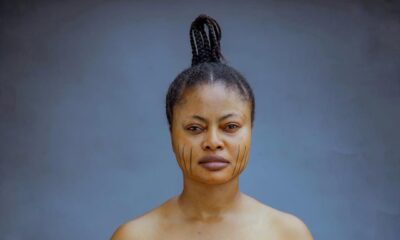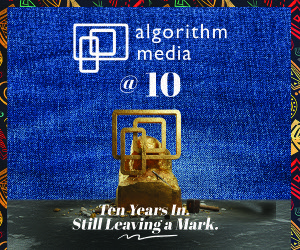Features
Twenty Years On Stage: Yvonne Jegede on Fame, Purpose and Giving Back
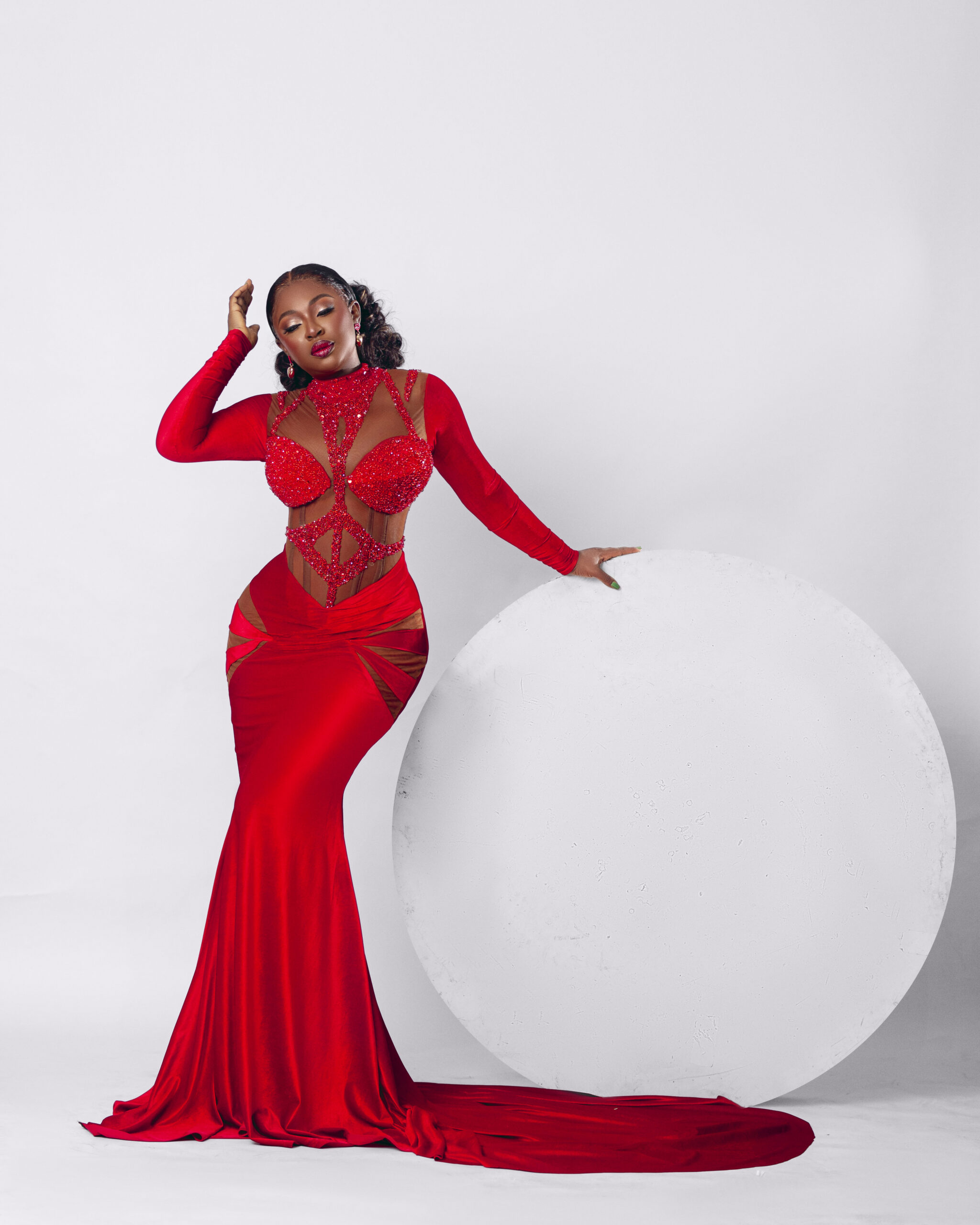
Yvonne Jegede never wanted to be an actor. There was never a time she sat down to decide that. After graduating from Lagos State University, she strung along with her uncle, Ignis Ekwe, to movie sets. Ignis Ekwe starred in classic Nollywood films like “Everyday People” and others. Yvonne wasn’t following her uncle to the movie sets to be an actress, but to just string along as a kind of Personal Assistant. At 18, she’d just sit and watch how productions were done behind the scenes. It also became an opportunity to get introduced to some Nollywood stakeholders at the time, like Pete Edochie and others.
A year later, at 19, her uncle moved back to Edo State. So Yvonne stopped going to movie sets. However, one night, she was at her friend’s place to watch a movie together. At the end of the movie, it turned out the lead actor was also the director of the movie, whom her friend knew about. It’s “one of those directors who are behind the scenes more than in front of the scenes,” Yvonne said. The director and actor was Charles Novia, and it was the first time that Yvonne would ever hear about him.
Coincidentally, less than 24 hours later, at Babs Animashaun Street. Surulere, Yvonne saw Charles Novia, the actor she had just learned about yesterday, crossing to the other side of the street. As though she was present at his naming ceremony, she screamed his name from where she stood, “Charles Novia!” “The audacity,” she said. Charles Novia turned and wondered who she was. He beckoned to her to come over. “There’s no uncle, nothing, nothing. I just called him Charles Novia like that. So he beckoned and said, “Come, come here. What’s your name?” I said, Yvonne Jegede, and I was like, I’m a big fan. I saw your movie yesterday, it was so nice. He looked at me, and he said, Do you want to act? I said, yeah, it will be very, very nice. He gave me his number right there and then, and asked me to call him to come to his office. He told me to come whenever I’m ready for an audition and stuff, and that was it. The next day, I went to his office, and that was how this wonderful man, whom I cannot tell my story without, Charles Novia, started taking me everywhere.” I was like his child.
Yvonne Jegede became known to many people through her appearance in 2Baba’s classic hit African Queen music video. She has since grown into one of the most recognisable faces in Nollywood. She has appeared in over 30 movies, won awards and produced her own movies.
At 42, as she celebrates 20 years of being on stage, Yvonne reflects on her journey into Nollywood, how it has been, taking a break from acting, the love she felt when she returned to the industry, and how she has used her platform to champion causes close to her heart, especially her philanthropic work that continues to impact lives across Nigeria.
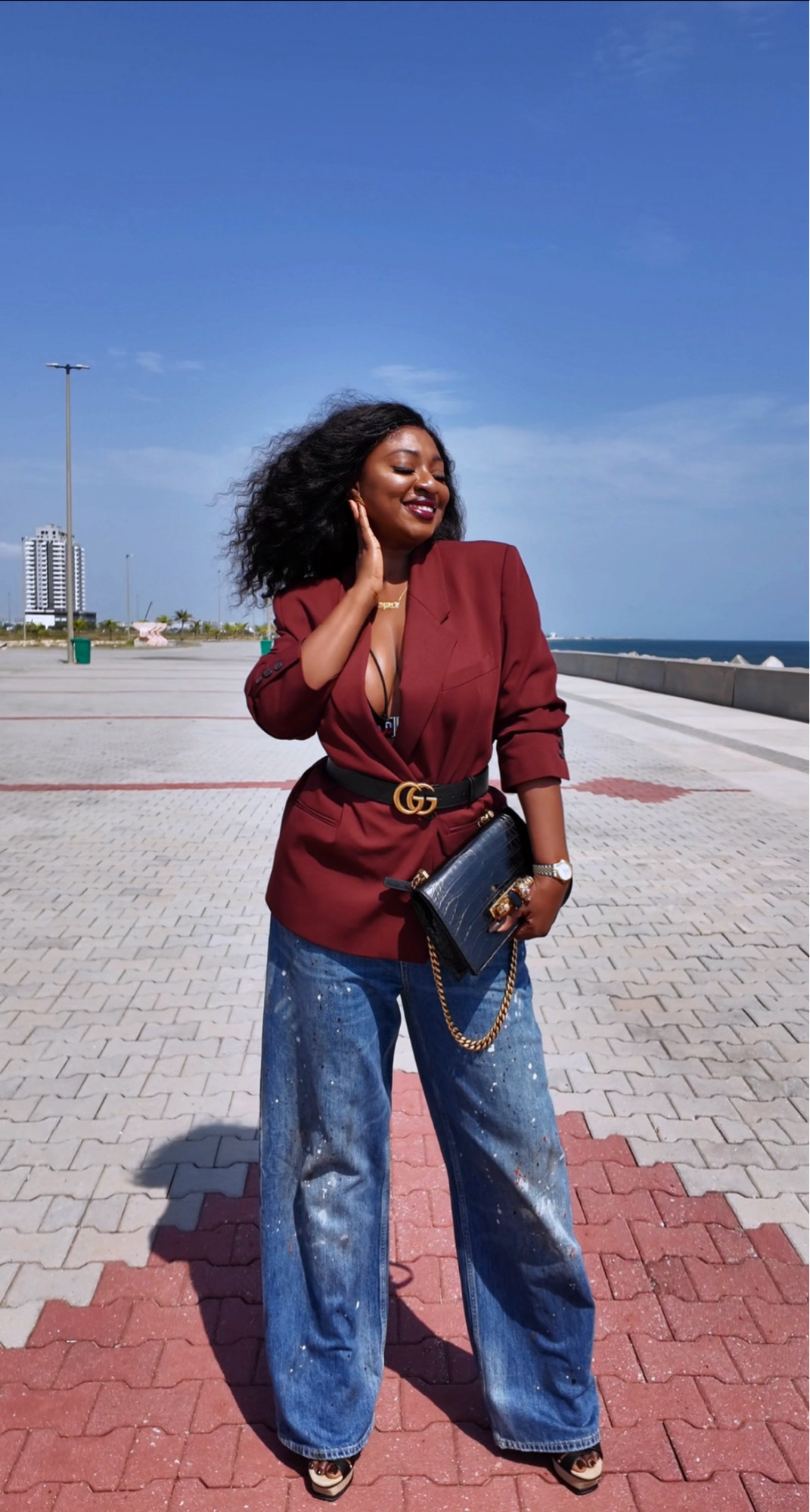
Hey Yvonne. Congratulations on the 20th anniversary of being on stage. If you can remember, what was the first movie you appeared in?
Hey Ahmad. Thank you. The first time I appeared on screen was in Blaze of Glory. It was a non-speaking character. I did another movie where I danced in a club. I did a lot of waka pass movies in the early days while also being with Charles Nova.
One day, Charles Nova called me and said he had a role for me. It was my first speaking role, and I think I had about 28 scenes. The movie had Desmond Elliot, Stella Damasus, Gloria Young and others. The title of the movie is Missing Angel.
So a lot of people got familiar with your face through the African Queen music video. How did you get to be on it?
I was sitting beside Uncle Charles at the set of Missing Angel when his phone rang. Charles Nova turned to me and said Uzor, the director of African Queen, wanted to speak to me. I picked up the phone, and he said, “I want you to do a music video for me tomorrow.” I was like, music video?
Meanwhile, I had done a music video for an artist called Slam way back, and a few others where you only dance in the music video, and that’s it. So I said, me I don’t want to do a music video o. He was like, “Are you sure? It’s African Queen by 2Face.” I sha said I don’t want.
In the evening, I happened to be on the phone with a friend, and I told him they wanted me to be in a music video. He asked what video, and I said it was 2Face, one of the Plantashun Boiz, who had just gone solo. Before I could even finish saying African Queen, my friend was already quivering on the other end of the phone. “Go and do it! Go and do it!” He kept screaming. “I love that song!” And the funny thing is, I hadn’t even heard the song at the time. But he just kept shouting, “Go and do it!”
It was about 9 p.m. that same evening when I picked up my phone and called Uzor. I told him, “Okay, I think I’ll do the video.” He gave me all the information. That night, I had to go to Surulere—there was a studio there, and a salon to get my hair done. When I got to the salon, they already knew someone was coming to get a specific hairstyle. After they were done, I took a bike to the location. And that was the beginning of my career, with the African Queen video.
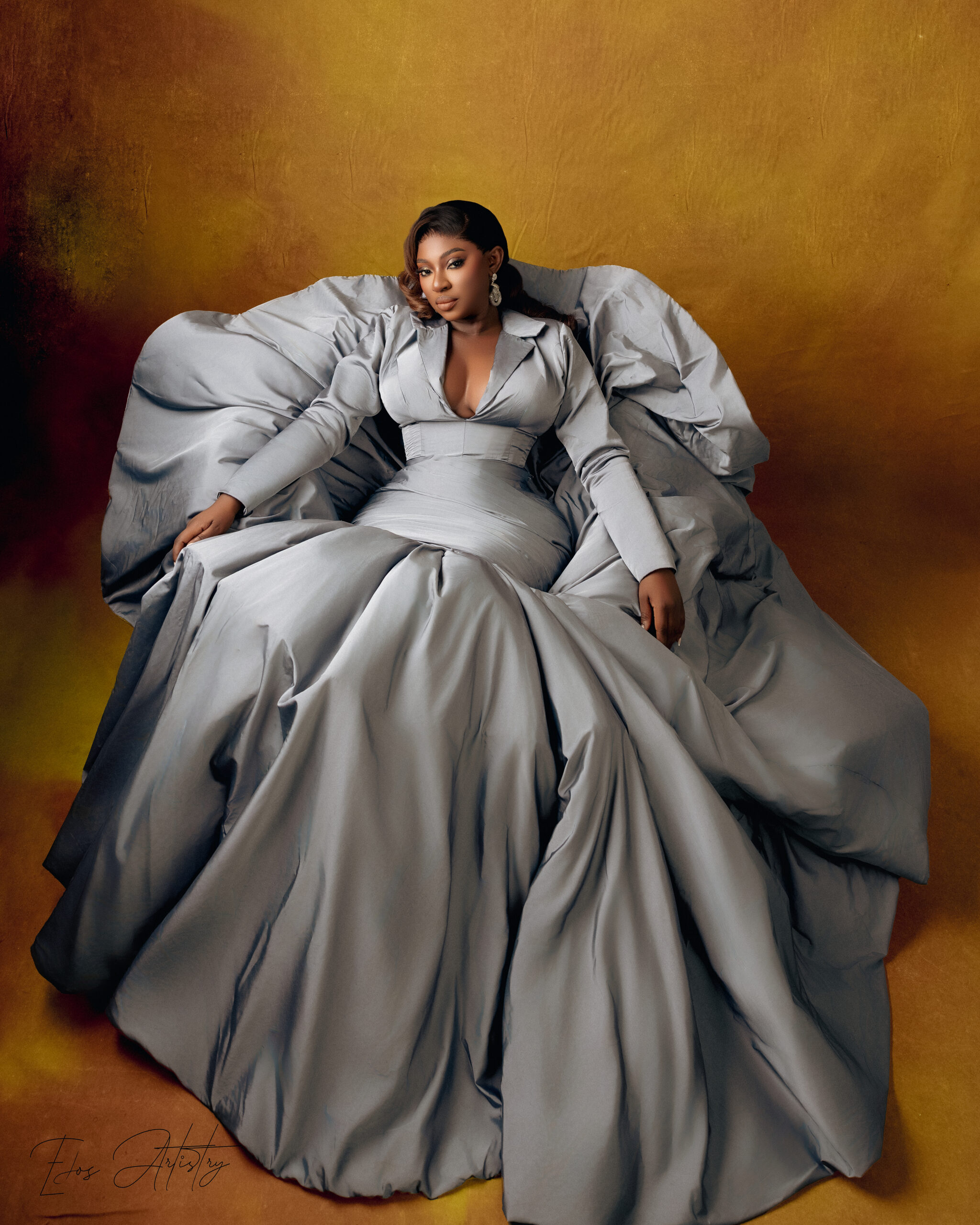
I think what most actors or people who appear on screens don’t know is how they silently inspire younger generations, especially young girls. But beyond acting, you’ve also used your platform for philanthropic projects. Please talk to me about them
So the projects came to me at different times for different reasons. The first one, which I have been, you know, committed to for seven years now, is the education of children in primary and secondary. I started that out of just shared empathy. I was scrolling through social media, and I found a group of children going to school, and they were so dedicated to their national anthem. They were on the school assembly ground, but I noticed that they were standing in dirty water. The school was flooded; it had rained, and the entire school premises were filled with muddy water, yet they were still doing their assembly there. I wondered, are these kids not supposed to be helped? Is the government not supposed to intervene? Why is the school in this state? Then, I was at a school that was privately owned by someone who had been trying to take children off the streets in Yaba and support them academically. He had been doing all of this by himself and was struggling to keep up.
So I decided to visit the school and see for myself. The school had grown and now had over 300 children. So I asked him how many children had no one sponsoring them at all. He said 18 were left. I told him, “Okay, bring all 18 of them. I’ll take them.” That was how the one for the students started in 2019.
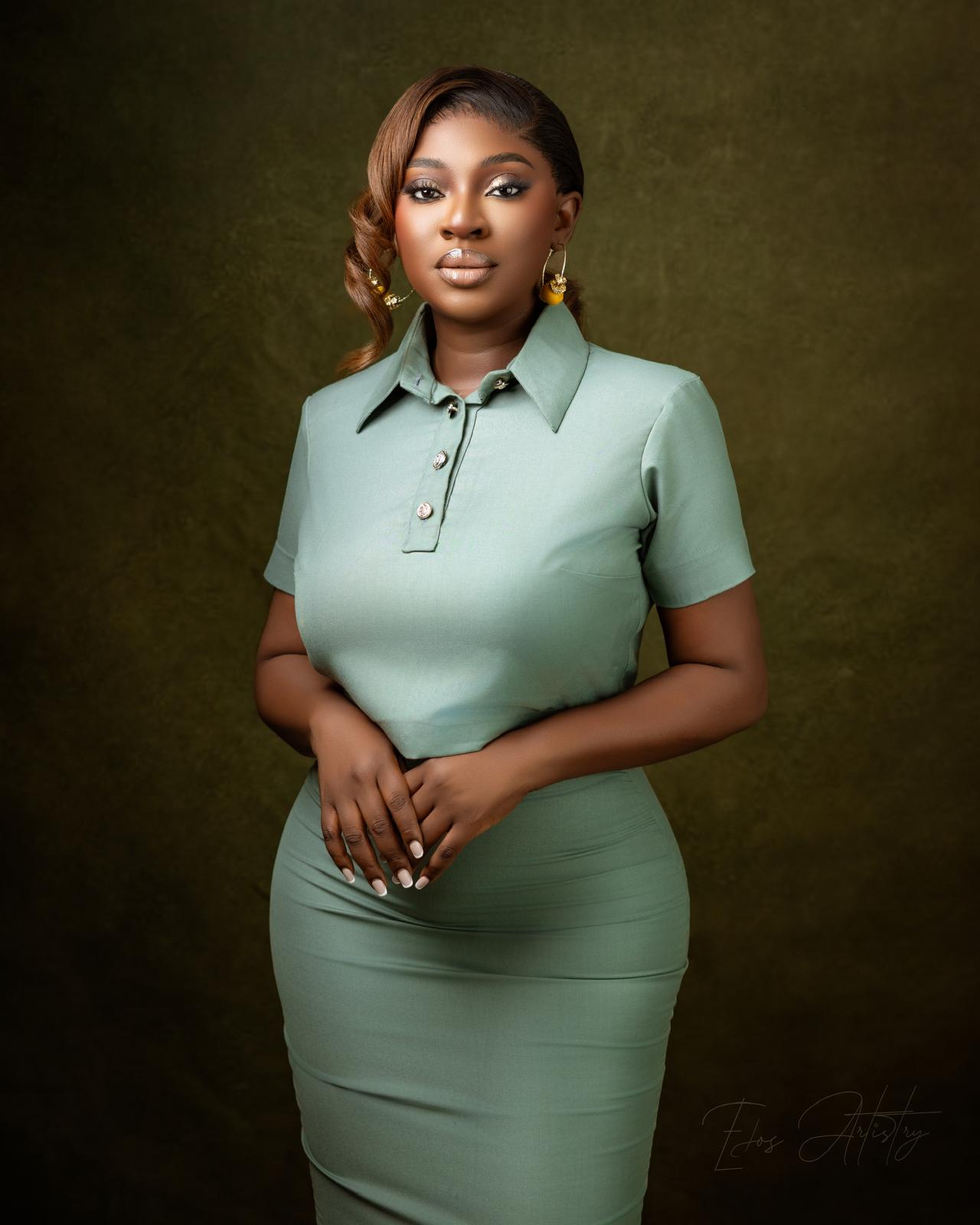
Then there is also the single parents initiative, which I am supporting and helping them financially, and helping them understand how they can scale life as single parents. We’re working on it. It’s very fresh, so we really haven’t started anything yet. We’ve started contacting the parents to understand what businesses they run and how we can help.
I also shot a movie about six years ago, talking about a family that kept having children, but all the kids kept dying. The story was basically meant to show that, most times, we refer to things as spiritual because, in Africa, we tend to lean more toward the spiritual side than the logical or scientific side, even though many things can be explained scientifically. I was trying to encourage people to understand that situations like that happen, and it’s important to speak to your doctor or a professional for guidance. Having a sickle cell child or being a sickle cell patient yourself doesn’t mean it’s the end of the world. There are treatments, activities, medications, and dietary measures that can help manage it.
The movie will premiere at the Yvonne Jegede Reimagined Event, the anniversary event, and it’s going to be part of the things I want to show the world that we still have some people who still want to give back.
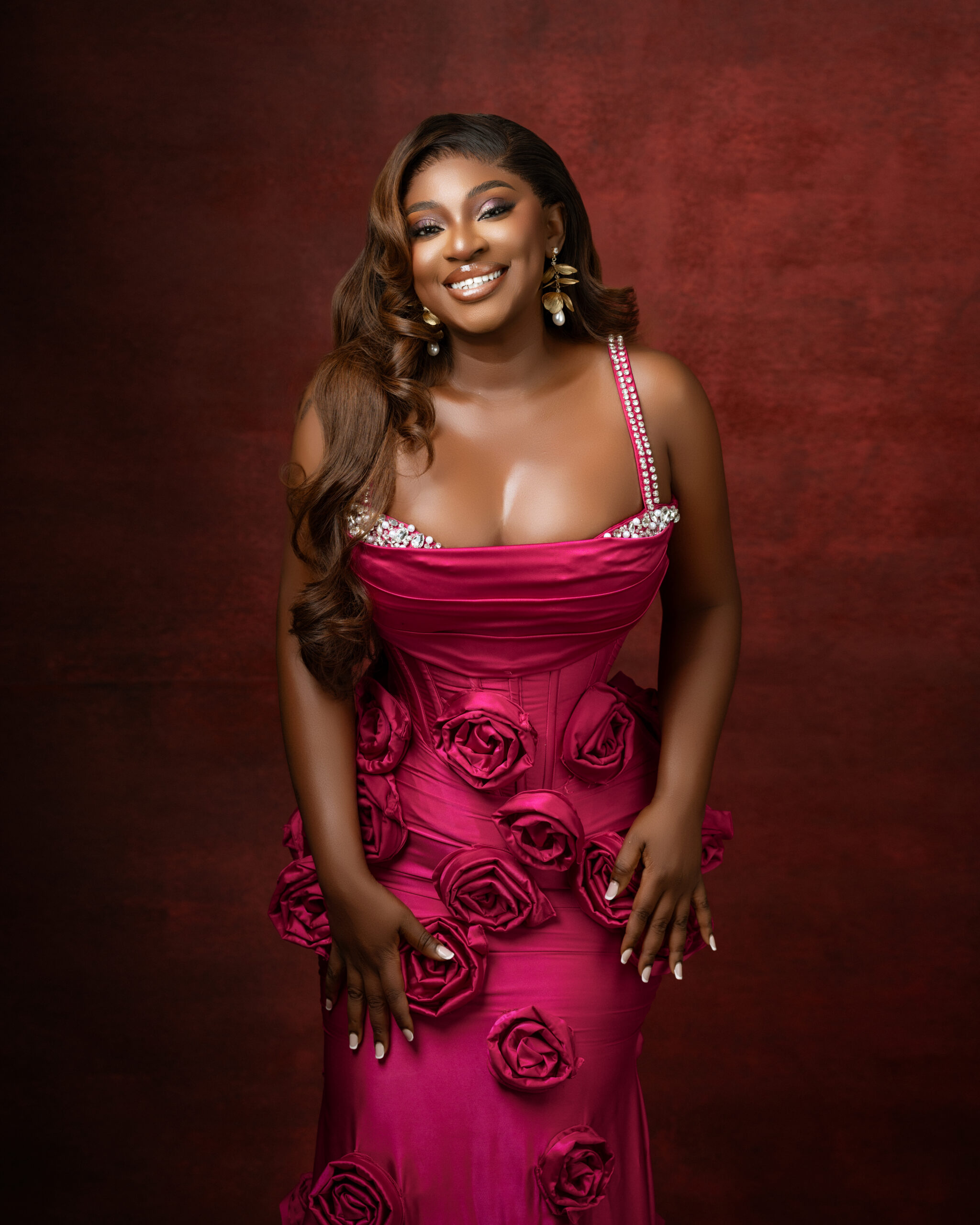
These are impressive projects, Yvonne. If I may ask, why are you doing them?
We don’t have a choice but to give back. I know what my status as an actor has given me. I get favours even without asking, so it’s only appropriate to reach out to those who don’t have.
If you could advise the coming generation, girls especially, in any industry, what would you say to them?
Always have integrity in whatever you do, because integrity is one currency that you can spend anytime, anywhere. When people can vouch for you, it is something that you can use any time, any day. When somebody can say, “I know her,” you don’t know how many doors that can open. Integrity is key, as a woman, because the world is built to favour the masculine gender. Also, mediocrity is not an option. Because as a woman, you have to work twice as hard to earn as much as a man. So we don’t have the luxury of doing it anyhow. So integrity is key, and mediocrity is not an option.
*This interview has been edited for brevity.




